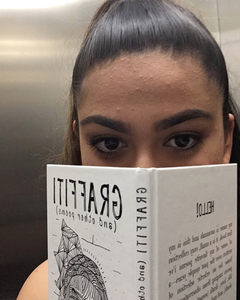Splash Biography
OLIVIA CHAUDHURY, Cornell Sophomore in Urban & Regional Studies
|
Major: Urban & Regional Studies, AAP College/Employer: Cornell Year of Graduation: 2020 |

|
Brief Biographical Sketch:
Sophomore studying Urban & Regional Studies in Cornell's school of Architecture, Art and Planning. Born in New York, raised in Bangladesh, hoping to use this Liberal Arts Degree™ to pursue virtual communities. One day our consciousnesses will be uploaded to the Metaverse (if they aren't already ?!? Life is a simulation, the Matrix is real). Exploring the collective human subconscious through the Internet. "Don't you think dreams and the Internet are similar? They're both areas where the repressed conscious mind vents." Paprika, Satoshi Kon 2006 I like strawberries, Archer, BoJack Horseman and sitting in the front of university lectures but retaining no information. Past Classes(Clicking a class title will bring you to the course's section of the corresponding course catalog)?593: Memes & The Modern Evolution in Splash Fall 2018 (Nov. 10, 2018)
In 1976, Richard Dawkins, an English evolutionary biologist, proposed an idea in his book The Selfish Gene. What if ideas are like organisms, where they could breed and mutate? These ideas, he claimed, are actually the basis for human culture, and are born in the brain. Dawkins called this concept “meme”, shortened from the Greek “mimeme”, meaning “that which is replicated”.
Memes are the building blocks of a new kind of evolution. They are copied by our brains and behavior and are passed from person to person. They are more than passing fads: they are titanic. They can modify the world and revolutionize life.
In this class we will look at memes as the basis for the information revolution of the digital age. How do memes work? How do they spread ideas? What controversies can/does this cause? How are memes present in your life, and how do they influence your thoughts and opinions?
?413: Memes & The Modern Evolution in Splash Spring 18 (Apr. 28, 2018)
In 1976, Richard Dawkins, an English evolutionary biologist, proposed an idea in his book The Selfish Gene. What if ideas are like organisms, where they could breed and mutate? These ideas, he claimed, are actually the basis for human culture, and they are born in the brain. Dawkins called this concept "meme", shortened from the Greek "mimeme", meaning "that which is replicated".
Memes are the building blocks of a new kind of evolution. They are copied by our brains and our behavior and are passed from person to person. They are more than passing fads: they are titanic. They can modify the world and revolutionize life.
In this class we will look at memes as the basis for the intellectual revolution of the digital age. How do memes work? How do they spread ideas? What controversies can/does this cause? How are memes present in your life, and how do they influence your thoughts and opinions?
|
|
